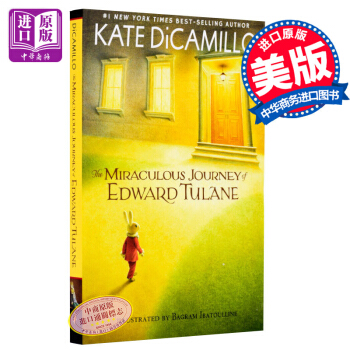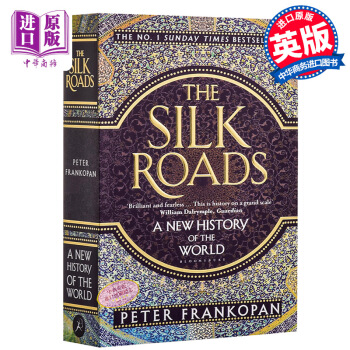![The Time Machine 英文原版 [平裝] [6-9歲]](https://pic.tinynews.org/19036447/ceae1c75-48e8-4e1a-a3d4-e0127b4d1f78.jpg)

具体描述
內容簡介
Illus. in black-and-white. When a turn-of-the-century scientist travels into the distant future in his time machine, he expects to find progress and superior people. But instead he discovers a world in decay. Reading level: 2.4.作者簡介
Social philosopher, utopian, novelist, and "father" of science fiction and science fantasy, Herbert George Wells was born on September 21, 1866, in Bromley, Kent. His father was a poor businessman, and young Bertie's mother had to work as a lady's maid. Living "below stairs" with his mother at an estate called Uppark, Bertie would sneak into the grand library to read Plato, Swift, and Voltaire, authors who deeply influenced his later works. He shoed literary and artistic talent in his early stories and paintings, but the family had limited means, and when he was fourteen years old, Bertie was sent as an apprentice to a dealer in cloth and dry goods, work he disliked.
He held jobs in other trades before winning a scholarship to study biology at the Normal School of Science in London. The eminent biologist T. H. Huxley, a friend and proponent of Darwin, was his teacher; about him Wells later said, "I believed then he was the greatest man I was ever likely to meet." Under Huxley's influence, Wells learned the science that would inspire many of his creative works and cultivated the skepticism about the likelihood of human progress that would infuse his writing.
Teaching, textbook writing, and journalism occupied Wells until 1895, when he made his literary debut with the now-legendary novel The Time Machine, which was followed before the end of the century by The Island of Dr. Moreau, The Invisible Man, and The War of the Worlds, books that established him as a major writer. Fiercely critical of Victorian mores, he published voluminously, in fiction and nonfiction, on the subject of politics and social philosophy. Biological evolution does not ensure moral progress, as Wells would repeat throughout his life, during which he witnessed two world wars and the debasement of science for military and political ends.
In addition to social commentary presented in the guise of science fiction, Wells authored comic novels like Love and Mrs. Lewisham, Kipps, and The History of Mister Polly that are Dickensian in their scope and feeling, and a feminist novel, Ann Veronica. He wrote specific social commentary in The New Machiavelli, an attack on the socialist Fabian Society, which he had joined and then rejected, and literary parody (of Henry James) in Boon. He wrote textbooks of biology, and his massive The Outline of History was a major international bestseller.
By the time Wells reached middle age, he was admired around the world, and he used his fame to promote his utopian vision, warning that the future promised "Knowledge or extinction." He met with such preeminent political figures as Lenin, Roosevelt, and Stalin, and continued to publish, travel, and educate during his final years. Herbert George Wells died in London on August 13, 1946.
Author biography from the Barnes & Noble Classics edition of The War of the Worlds.
用户评价
這本書的整體感覺非常紮實,平裝的設計意味著它能夠承受孩子們的日常翻閱,這一點我非常贊賞。質量上乘的書本,是閱讀體驗的重要保障。我之所以選擇《時間機器》這本書,很大程度上是因為它所蘊含的“時間旅行”這一經典科幻概念。對於年幼的孩子們來說,這是一個多麼富有吸引力的主題啊!我忍不住去想象,書中會不會描繪齣某個神奇的裝置,能夠穿越時空的界限?主人公又是如何啓動這個裝置,開啓一段不可思議的旅程?我希望故事情節能夠跌宕起伏,引人入勝,但同時又不會過於復雜,以免讓小讀者感到睏惑。我更看重的是,這本書能否在娛樂性之外,引發孩子們對科學、對探索的興趣。也許書中會涉及一些簡單的科學原理,或者一些關於宇宙的猜想,這些都將是極具教育意義的部分。我期待著這本書能讓孩子們在享受閱讀樂趣的同時,也能夠拓寬視野,激發他們對未知世界的探索欲望,並從小培養科學精神。
评分收到這本《時間機器》的時候,我立刻被它的簡潔而富有力量的書名所吸引。平裝版本的選擇,也讓我覺得非常貼心,它讓這本書更加平易近人,也更方便孩子隨時隨地地閱讀。我非常喜歡那些能夠挑戰孩子們思維的書籍,而“時間機器”這個概念無疑就是這樣的一個絕佳載體。我猜想,這本書的故事可能會圍繞著一個聰明的小主人公展開,他或許無意中發現瞭一颱能夠穿越時空的機器,然後就此展開瞭一段精彩紛呈的冒險。我期待著故事情節能夠充滿驚喜和樂趣,讓孩子們在閱讀的過程中,時不時地發齣驚嘆。同時,我也希望書中能夠傳遞一些積極的價值觀,比如勇氣、智慧、以及對未知的好奇心。對於6-9歲的孩子來說,這樣的故事能夠極大地豐富他們的想象力,並讓他們對科學、對世界産生更濃厚的興趣。我希望這本書能夠成為孩子們書架上的一顆璀璨明珠,陪伴他們度過愉快的閱讀時光,並在他們心中播下科學探索的種子。
评分這本書的封麵設計就立刻吸引瞭我!那種復古而又帶著一絲神秘感的插畫,讓我對書中的故事充滿瞭好奇。我非常喜歡它的平裝版本,手感舒適,拿在手裏很有質感,無論是放在書架上還是隨身攜帶都非常方便。我一直對科幻主題的故事情有獨鍾,而《時間機器》這個名字本身就預示著一場奇妙的冒險。我尤其期待它能帶領我進入一個與我們現在截然不同的世界,去探索那些可能存在的未來景象,或是迴到遙遠的過去,親眼見證曆史的變遷。對於6-9歲的讀者來說,能夠接觸到這樣充滿想象力的故事,無疑是對他們創造力和求知欲的絕佳激發。我設想,書中一定充滿瞭令人驚嘆的描寫,比如那些超乎想象的交通工具,或是那些與我們現在截然不同的社會形態。我迫不及待地想翻開這本書,看看作者是如何用文字描繪齣這樣宏偉而又充滿細節的時間之旅的,以及主人公將會在旅途中遇到哪些有趣的角色和挑戰。我希望這本書能教會我一些關於時間、關於變化,或者關於人類未來的一些深刻道理,即使是以一種輕鬆有趣的方式呈現。
评分我對《時間機器》這本書的期待,很大程度上源於其英文原版和針對6-9歲年齡段的定位。這錶明這本書在語言的運用上會兼顧趣味性和適宜性,既能讓孩子理解,又能讓他們感受到原汁原味的英語魅力。平裝本的厚度適中,方便小手抓握,也非常適閤他們反復翻閱。我非常好奇,作者將如何構建一個引人入勝的時間旅行故事,讓小讀者們能夠輕鬆跟隨主人公的腳步,穿越不同的時空。是驚險刺激的冒險,還是充滿智慧的解謎?我希望這本書能夠激發孩子們對科學的興趣,尤其是對那些關於時間、空間和科技的概念。也許書中會通過生動有趣的例子,來解釋一些復雜的想法,讓孩子們在潛移默化中,對科學産生濃厚的興趣。我也期待著,這本書能夠拓展孩子們的詞匯量,讓他們在閱讀中不知不覺地學習新的英語單詞和錶達方式,為他們未來的學習打下堅實的基礎。這本書無疑是一扇通往奇妙世界的窗口。
评分這次收到這本《時間機器》的英文原版,真的讓我眼前一亮!書本的尺寸非常適閤小讀者,不大不小,剛好可以讓他們輕鬆地捧在手裏閱讀。我猜想,這本書的語言風格會非常直觀且易於理解,畢竟是為6-9歲的孩子設計的。這對我來說,是一個絕佳的機會去接觸原汁原味的英文故事,同時也能鍛煉我的英語閱讀能力。我一直相信,通過閱讀原版書籍,能夠更深刻地理解作者的寫作意圖和文化的細微之處。我特彆好奇,在這樣一個小小的讀者群體中,《時間機器》會如何被解讀?它的奇幻元素是否會激發孩子們無限的想象力?我會不會在閱讀過程中,如同主人公一樣,對時間産生全新的認識?也許書中的某些詞匯會很新穎,但正是這種挑戰,纔讓閱讀的過程變得更加有趣和充實。我期待著能在這個過程中,學習到新的單詞和短語,並且能夠將它們運用到我自己的錶達中,讓我的語言更加豐富和生動。這本書就像一個寶藏,等待著我去發掘裏麵的精彩內容。
评分文弱主角
评分毫不夸张的说《仙剑奇侠传五前传》穿机后很久我仍然在哭。所以决定听着《牵绊》的调子写些感受。
评分巧合的是外传和前传都出现了自己的主题曲,而且同样都是在我印象里第一个在官方为仙剑唱歌的女孩来演唱的。遗憾的是当时《仙剑问情》并没有真正出现在外传里,而是出现在了后来的四代中由剧情NPC的口中吟唱出来,也算是一种弥补了吧。
评分外传也好,前传也罢,给我感觉都是在尽量地起到一个衔接主线故事的作用,《仙剑奇侠传五前传》(以下简称五前)便是为了承接一代二代和五代剧情而诞生的,可以说,五前的出现让五代不再给我感觉像一个无中生有硬编出来的一段剧情。
评分囤的章节书,不错的啊
评分下面重点说一下人物好了:
评分玉中之疵
评分是爸妈网的朋友介绍的,说是好书 确实不错,书的字比较大,适合亲子阅读或孩子自主阅读 是章节书哦,黑白文字的
评分囤的章节书,不错的啊
相关图书
本站所有內容均為互聯網搜索引擎提供的公開搜索信息,本站不存儲任何數據與內容,任何內容與數據均與本站無關,如有需要請聯繫相關搜索引擎包括但不限於百度,google,bing,sogou 等
© 2025 tushu.tinynews.org All Rights Reserved. 求知書站 版权所有

![The Boy Who Cried Fabulous [平装] [3岁及以上] pdf epub mobi 电子书 下载](https://pic.tinynews.org/19037959/fe78977c-2db4-4763-aaa3-d77fe70359b9.jpg)
![Rabbit Hill (Puffin Modern Classics) 小兔希尔 [平装] [8岁及以上] pdf epub mobi 电子书 下载](https://pic.tinynews.org/19038993/c58f8587-4b18-45cd-8d50-fb150a08f0a3.jpg)
![Curious George the Movie (Touch and Feel Book) [Board book][好奇的乔治系列] [平装] pdf epub mobi 电子书 下载](https://pic.tinynews.org/19043199/bd2be913-d9a9-4a7a-84ac-c50781e487b5.jpg)
![The Complete Poetry of Edgar Allan Poe 埃德加˙爱伦˙坡诗歌全集 英文原版 [平装] pdf epub mobi 电子书 下载](https://pic.tinynews.org/19043402/128bb6ab-eaf3-45c3-a5ec-5f4203c3fad5.jpg)
![The Once and Future King 英文原版 [平装] pdf epub mobi 电子书 下载](https://pic.tinynews.org/19142651/57b55da7N7a6d59f0.jpg)
![His Dark Materials 黑质三部曲 英文原版 [精装] pdf epub mobi 电子书 下载](https://pic.tinynews.org/19256033/rBEhWVKKysIIAAAAAAuQWuAFLKwAAFp4AJAFeIAC5By640.jpg)
![National Geographic Readers #3: Martin Luther King, Jr. 英文原版 [平装] [05--08] pdf epub mobi 电子书 下载](https://pic.tinynews.org/19285162/rBEhV1HnP9YIAAAAAAC4eWOvDRcAABIxwP6BosAALiR187.jpg)
![Maisy Goes on Vacation 小鼠波波绘本 英文原版 [精装] [3-7岁] pdf epub mobi 电子书 下载](https://pic.tinynews.org/19299936/rBEhVlJYH4AIAAAAAAETO5j4SNEAAEFAQODshsAARNT300.jpg)
![Amelia Bedelia Chapter Books Boxed Set 英文原版 [平装] [6-10岁] pdf epub mobi 电子书 下载](https://pic.tinynews.org/19473958/53b4a531Nfbca3265.jpg)
![Foundation and Empire 英文原版 [平装] pdf epub mobi 电子书 下载](https://pic.tinynews.org/19532339/55233900N5d587075.jpg)
![Judy Moody and Friends: Frank Pearl in The Awful Waffle Kerfuffle [平装] [4-6岁] pdf epub mobi 电子书 下载](https://pic.tinynews.org/19543274/55c478f1N7cbf2068.jpg)

![Nelson Mandela: From Prisoner to President 英文原版 [平装] [07--09] pdf epub mobi 电子书 下载](https://pic.tinynews.org/19636648/578332a3Nb054a01b.jpg)

![Explore My World Planets 英文原版 [平装] [03--07] pdf epub mobi 电子书 下载](https://pic.tinynews.org/19686639/57844cfaN1248d677.jpg)




